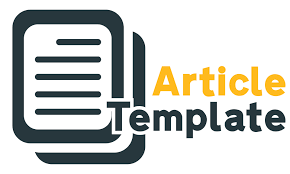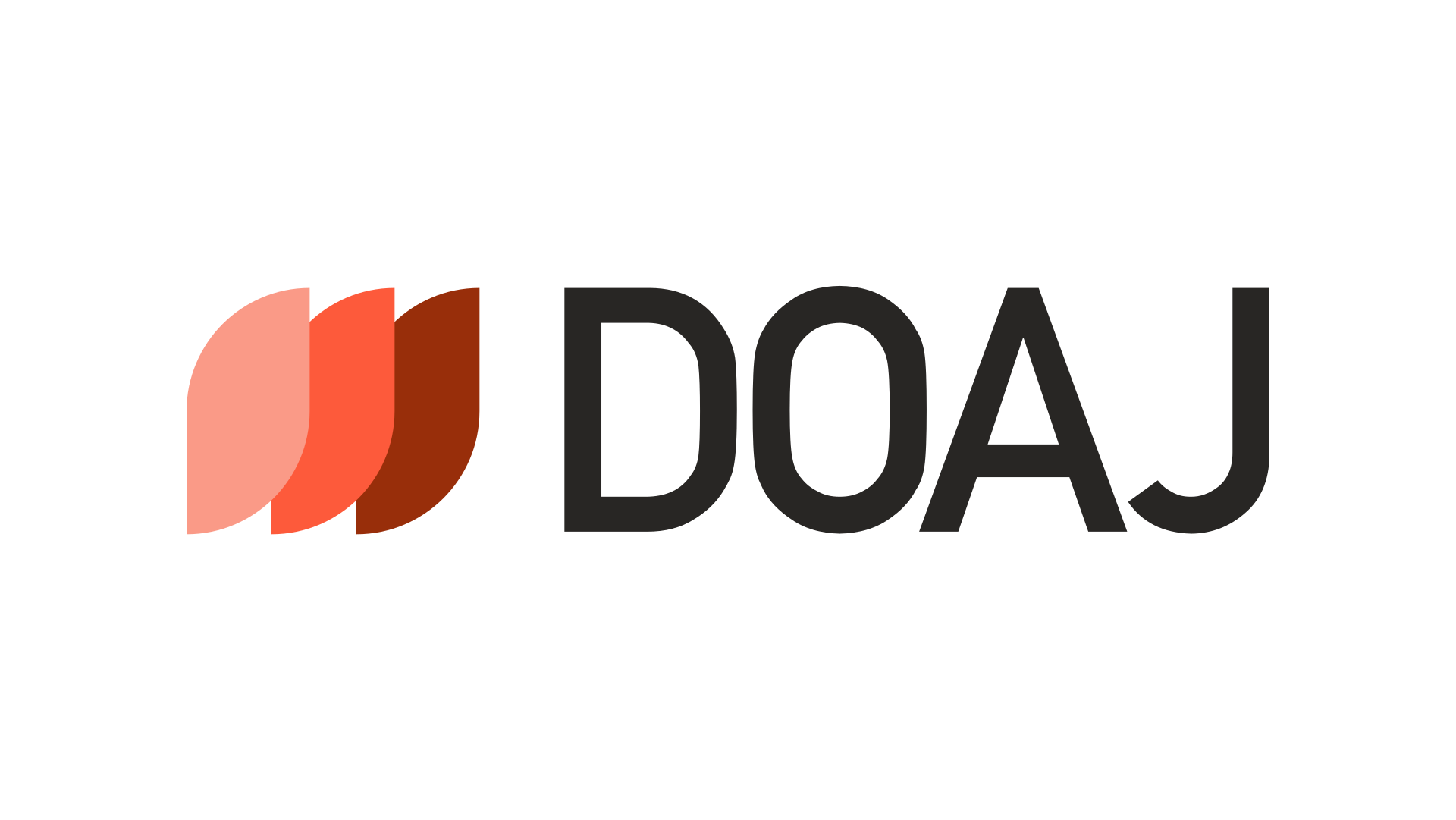Income, tax knowledge, and tax incentives impact on MSME tax compliance in COVID-19
DOI:
https://doi.org/10.38043/revenue.v4i1.5090Keywords:
Income Level, Tax Knowledge, Implementation of Tax Incentive Policies, Taxpayer ComplianceAbstract
This study aimed to determine the effect of income level, tax knowledge, and the application of tax incentive policies partially on taxpayer compliance. The research method used was quantitative. The population in this study comprised taxpayers who had a business type of UMKM registered at KPP Pratama Gianyar, and the sample used consisted of 100 people. The data analysis techniques included the Validity Test, Reliability Test, Classical Assumption Test, Multiple Linear Regression Analysis, Determination Coefficient Test, F Test, and t-test. From the results of the study, the following were obtained: (1) The level of income had a significant positive effect on taxpayer compliance, where the t-coefficient value was 3.598, the regression coefficient value was 0.364, and the significance was 0.001. (2) Tax knowledge had a significant positive effect on taxpayer compliance, with the t-coefficient value being 4.339, the regression coefficient value 0.335, and the significance 0.000. (3) The application of tax incentive policies had a significant positive effect on taxpayer compliance, with the t-coefficient value being 3.159, the regression coefficient value 0.210, and the significance 0.002. The suggestion in this study was that the Gianyar KPP Pratama should provide a tax burden that was in accordance with the taxpayer's business income and routinely provide tax socialization to increase taxpayer knowledge. Additionally, the Gianyar KPP Pratama should provide fair tax incentives to all taxpayers who meet the conditions for receiving them.
References
Articles
Adriani, D., and Wiksuana, I. G. B. (2018). Inklusi keuangan dalam hubungannya dengan pertumbuhan umkm dan tingkat kesejahteraan masyarakat di provinsi Bali. E-Jurnal Manajemen Universitas Udayana, 7(12), 6420. https://doi.org/10.24843/ejmunud.2018.v07.i12.p02
Al-Ttaffi, L. H. A., Bin-Nashwan, S. A., and Amrah, M. R. (2020). The influence of tax knowledge on tax compliance behaviour: A case of Yemeni individual taxpayers. Journal of Business Management and Accounting, 10(2), 15-30.
Amran, A. (2018). Pengaruh sanksi perpajakan, tingkat pendapatan dan kesadaran wajib pajak terhadap kepatuhan wajib pajak orang pribadi. ATESTASI: Jurnal Ilmiah Akuntansi, 1(1), 1–15. https://doi.org/10.33096/atestasi.v1i1.5
Anggini, V., Lidyah, R., and Azwari, P. C. (2021). Pengaruh pengetahuan dan sanksi terhadap kepatuhan wajib pajak dengan religiusitas sebagai variabel pemoderasi. Syntax Literate. Jurnal Ilmiah Indonesia, 6(6), 3080. https://doi.org/10.36418/syntax-literate.v6i6.1430
Aprilianti, A. A. (2021). Pengaruh kesadaran wajib pajak, sosialisasi perpajakan, insentif pajak, dan sistem e-samsat terhadap kepatuhan wajib pajak kendaraan bermotordi masa pandemi Covid-19. Jurnal Ekonomi, Manajemen & Akuntansi, 11(1), 1–20.
Dewi Anggadini, S., Lnu, S., Bramasto, A., & Fahrana, E. (2022). Determination of individual taxpayer compliance in Indonesia: A case study. Journal of Eastern European and Central Asian Research, 9(1).
Ermawati, N. (2018). Pengaruh religiusitas, kesadaran wajib pajak dan pengetahuan perpajakan terhadap kepatuhan wajib pajak. Jurnal Stie Semarang, 10(1), 106–122. https://doi.org/10.33747/stiesmg.v10i1.89
Fadilah, L., Noermansyah, A. L., and Krisdiyawati, K. (2021). Pengaruh tingkat pendapatan, penurunan tarif, dan perubahan cara pembayaran terhadap kepatuhan wajib pajak UMKM masa pandemi Covid-19. Owner, 5(2), 450–459. https://doi.org/10.33395/owner.v5i2.487
Fahmi, S., and Linda, F. (2014). Faktor-faktor yang mempengaruhi kepatuhan membayar pajak umkm di kabupaten kendal. Accounting Analysis Journal, 3(3), 399–406.
Hartini, O. S., and Sopian, D. (2018). Pengaruh pengetahuan perpajakan dan kesadaran wajib pajak terhadap kepatuhan wajib pajak orang pribadi (Studi Kasus Pada Kantor Pelayanan Pajak Pratama Karees). Jurnal Sains Manajemen & Akuntansi, 10(1), 21–39.
Inasius, F., Darijanto, G., Gani, E., and Soepriyanto, G. (2020). Tax compliance after the implementation of tax amnesty in Indonesia. SAGE Open, 10(4), 2158244020968793.
Khairunnisa, R. A., & Nurhayati, N. (2022). Pengaruh pengetahuan perpajakan dan tingkat pendidikan terhadap kepatuhan wajib pajak UMKM di masa pandemi Covid-19. Bandung Conference Series Accountancy, 2(1), 539. https://doi.org/10.29313/bcsa.v2i1.1938
Khalimaturrosyida, R. (2022, June). Determinant of tax compliance of MSME taxpayers during the COVID-19 pandemic. In International Conference on Economics and Business Studies (ICOEBS 2022), 216-223. Atlantis Press.
Latief, S., Zakaria, J., and Mapparenta, M. (2020). Pengaruh kepercayaan kepada pemerintah, kebijakan insentif pajak dan manfaat pajak terhadap kepatuhan wajib pajak. CESJ: Center Of Economic Students Journal, 3(3), 270–289
Lestary, S. R., Sueb, M., and Yudianto, I. (2021). The effect of tax fairness, tax socialization, and tax understanding on tax compliance: a study on micro, small and medium enterprises (MSMEs). Journal of Accounting Auditing and Business, 4(1).
Oktaviani, R., Kurnia, H., Sunarto, S., and Udin, U. (2020). The effects of taxpayer knowledge and taxation socialization on taxpayer compliance: The role of taxpayer awareness in developing Indonesian economy. Accounting, 6(2), 89-96.
Pattiasina, V., Noch, Y., & Mohammad, R. R. (2020). Determinants of taxpayer compliance level: Empirical study in East Indonesia. The Journal of Research on the Lepidoptera, 51(1), 339-351.
Pertiwi, A. R., Iqbal, S., & Baridwan, Z. (2020). Effect of fairness and knowledge on tax compliance for Micro, Small, and Medium Enterprises (MSMEs). International Journal of Research in Business and Social Science (2147-4478), 9(1), 143-150.
Raharjo, N. K., Majidah, M., and Kurnia, K. (2020). Pengaruh pemahaman peraturan perpajakan, tarif pajak, dan kualitas pelayanan terhadap kepatuhan wajib pajak (Studi Kasus pada Wajib Pajak Orang Pribadi Non Karyawan di KPP Pratama Cibinong Periode 2020). E-Jurnal Ekonomi Dan Bisnis Universitas Udayana, 7, 671. https://doi.org/10.24843/eeb.2020.v09.i07.p05
Rahman, A. (2018). Pengaruh kesadaran wajib pajak, tingkat pendidikan, dan pendapatan terhadap kepatuhan membayar pajak bumi dan bangunan. Jurnal Akuntansi Universitas Negeri Padang, 6(1), 1–20. http://ejournal.unp.ac.id/students/index.php/akt/article/view/2946
Riyanti, B., and Sudarmawanti, E. (2022). Meningkatkan kepatuhan wajib pajak UMKM pada era new normal melalui pemberian insentif pajak, peningkatan kondisi keuangan dan kesadaran pajak. Owner, 6(2), 2167–2179. https://doi.org/10.33395/owner.v6i2.826
Rustiyaningsih, S. (2017). Faktor yang mempengaruhi kepatuhan wajib pajak orang pribadi dalam membayar pajak. Widya Warta, 01(01), 114–128.
Samrotun, Y. C., and Suhendro, L. (2018). Faktor-faktor yang mempengaruhi kepatuhan wajib pajak dalam membayar pajak. Jurnal Riset Akuntansi dan Bisnis Airlangga, 3(1), 372–395. https://doi.org/10.31093/jraba.v3i1.94
Siregar, R. S., Putri, R. F., Muslim, U., Al, N., and Medan, W. (2022). Pengaruh insentif pajak, sanksi pajak dan e-filing terhadap tingkat kepatuhan wajib pajak selama Covid-19. Jurnal Multi disiplin Madani (MUDIMA), 2(2), 671–684.
Sudarto. (2012). Studi Pendapatan pedagang kecil anggota KUD ditinjau dari modal usaha di kecamatan sidoharjo sragen. Jurnal Pendidikan Ilmu Sosial, 22(2), 135–143.
Susyanti, J., and Anwa, S. A. (2020). Efek sikap wajib pajak, kesadaran wajib pajak, pengetahuan perpajakan terhadap kepatuhan pajak di masa COVID-19. SEBATIK, 24(2), 171–177. https://doi.org/10.30588/jmp.v3i1.84
Syanti, D., Widyasari, & Nataherwin. (2020). Pengaruh insentif pajak, tarif pajak, sanksi pajak dan pelayanan pajak terhadap kepatuhan wajib pajak selama masa pandemi Covid-19. Jurnal Ekonomika Dan Manajemen, 9(2), 17.
Taing, H. B., & Chang, Y. (2021). Determinants of tax compliance intention: Focus on the theory of planned behavior. International journal of public administration, 44(1), 62-73.
Wardani, D. K., & Rumiyatum R. (2017). Pengaruh pengetahuan wajib pajak, kesadaran wajib pajak, sanksi pajak kendaraan bermotor, dan sistem samsat drive thru terhadap kepatuhan wajib pajak kendaraan bermotor. Jurnal Akuntasi, 5(1), 15.
Yusuf, M. A. (2022). The effect of giving MSME final income tax incentives and taxpayer awareness on the level of taxpayer compliance. Point of View Research Accounting and Auditing, 3(1), 01-14.
Zulma, G. W. M. (2020). Pengaruh pengetahuan wajib pajak, administrasi pajak, tarif pajak dan sanksi perpajakan terhadap kepatuhan pajak pada pelaku usaha UMKM di Indonesia. Ekonomis: Journal of Economics and Business, 4(2), 288. https://doi.org/10.33087/ekonomis.v4i2.170
Book
Mardiasmo. (2016). Perpajakan Edisi Revisi 2013. Andi Offset.
Rahayu, S. K. (2017). Perpajakan Konsep dan aspek Formal. Alfabeta.
Website
Balipost.com. (2019). Setengah Jumlah UMKM Bali Ada di Gianyar. Retrieved from https://www.balipost.com/news/2019/02/03/67908/Setengah-JumlahUMKM-Bali-Ada.html
CNBC Indonesia. (2021). Begini Cara UMKM Bali Bertahan dari Pandemi. Retrieved from https://www.cnbcindonesia.com/entrepreneur/20210111111121-25-214954/begini-cara-umkm-bali-bertahan-dari-pandemi
Downloads
Published
How to Cite
Issue
Section
License
Copyright (c) 2023 Ni Luh Putu Western Thelmalia, Gde Putra Pemayun, Caren Angellina Mimaki

This work is licensed under a Creative Commons Attribution-ShareAlike 4.0 International License.











